



Skills and qualities play a crucial role in today’s fast-paced and competitive job market. Having the right skills is no longer enough — knowing how to showcase them matters just as much. Whether you're an experienced professional looking to climb the career ladder or a recent graduate trying to break into your industry, understanding your skillset — including your professional strengths and a clear list of skills and qualities — is key.
This is where professional skills assessments come in. A professional skills assessment is a structured way to evaluate what you’re good at, what needs work, and how well you match the demands of your chosen career. These assessments are used by both individuals and organisations to identify competencies, plan training, and make informed decisions. They can help clarify what are personal skills — such as communication or time management — and what are professional skills, like leadership, technical ability, or problem-solving.
In this blog, we’ll explore what a professional skills assessment really is, the different types, how they work, and — most importantly — the many benefits they offer to both individuals and employers.
Quick Overview
Professional skills assessments evaluate both hard and soft skills essential for career success. They help individuals identify strengths, address skill gaps, improve CVs, and plan career growth. Employers use them to make smarter hires, tailor training, boost employee engagement, and support promotions. This blog covers different assessment types, their benefits, and tips on using them effectively to advance careers and enhance organisational performance.
Whether you’re a job seeker or employer, this guide helps you:
✅ Understand different types of professional skills and assessments.
✅ Recognise the benefits for individuals and organisations.
✅ Learn how to choose, prepare for, and apply assessment results strategically.
In addition to offering insight into where you stand, these assessments often provide useful skills and qualities examples that can help guide career development and training plans.
A professional skills assessment is a formal method of measuring a person’s ability in specific areas related to their job or career. It can evaluate both hard skills (like IT proficiency, financial analysis, or writing) and soft skills (like teamwork, leadership, or communication), giving a well-rounded view of a person's skills and qualities. These assessments are often used in:
The goal is to provide a clear picture of someone’s strengths, gaps, and growth potential — focusing on professional skills, personal skills, and relevant skills and attributes — rather than relying on vague self-assessments or generic CV statements.
Unlike personality tests that explore traits and tendencies, professional skills assessments focus on actual performance and ability — meaning they're grounded in real-world tasks and expectations.
These are teachable, measurable abilities that relate to a specific job or industry. Examples include:
These are typical professional skills that form the core of many job-specific assessments.
These are interpersonal and behavioural skills that affect how people interact, lead, and work in teams. Commonly assessed soft skills — often classified as personal skills — include:
These personal skills examples help employers identify potential beyond technical ability.
Some assessments target skills relevant to specific roles. For instance:
These assess both skills and attributes specific to a job's demands.
These are skills that apply across multiple jobs or industries — like adaptability, collaboration, or critical thinking. They represent core skills and qualities that are valuable in any workplace.
These include logical reasoning, attention to detail, and numerical aptitude. They don’t test knowledge, but rather your ability to learn and solve problems — highlighting fundamental skills and attributes that support long-term success.
There’s no one-size-fits-all. Depending on the job or purpose, assessments can take different forms, such as:
Individuals
Employers
Career Coaches and Educators
Training Providers
Professional skills assessments offer more than just scores or rankings — they give you clarity, confidence, and direction. Whether you're early in your career or looking to grow into a new role, these evaluations can be the stepping stone to smarter decisions and faster progress. They help you better understand your skills and qualities, making it easier to build stronger personal resumes and career plans based on your actual strengths.
Here’s how they benefit you personally:
Many people either underestimate or overestimate their own abilities. A skills assessment provides a reality check — often confirming what you're good at while highlighting areas you may have overlooked.
You’ll discover:
This self-awareness is the first step toward meaningful growth. It also gives you better insight into your personal and professional skills, helping you see how they fit together to shape your success.
Once you have a clear understanding of your strengths, you can create a stronger, more targeted CV. Instead of vague buzzwords like:
“Great at communication”
You can be specific:
“Scored in the top 10% in interpersonal communication on [platform name] skills test.”
Similarly, in interviews, your answers become more grounded and persuasive:
“After taking a project management skills assessment, I realised I needed to improve on delegation, so I’ve been actively developing that through online training and mentoring.”
This kind of insight shows both competence and initiative — ideal when listing CV skills and qualities, or refining your CV personal skills section with real-world examples. It also supports stronger skills and qualities for a CV, with verified achievements rather than empty claims.
Skills assessments can point you toward new opportunities or more suitable paths. You might discover that:
Rather than jumping from job to job, you begin planning your career with intention and evidence — backed by real examples of skills and qualities.
There’s something powerful about seeing your strengths in black and white. It boosts your confidence and helps silence imposter syndrome. And for the areas you struggle with? That’s where growth begins.
A good assessment:
You stop guessing and start growing with purpose. Seeing tangible skills and attributes examples helps you recognise both progress and potential.
Have you ever started a course and thought, “This isn't what I needed”? Skills assessments prevent that. They guide you to:
Some platforms even personalise course recommendations based on your assessment results. This makes your upskilling journey more efficient, aligning learning goals with your current skills and qualities.
Employers increasingly value evidence of skills over academic degrees alone. When you include your skills assessment results (especially from reputable providers) on your CV or LinkedIn, you stand out.
You’re no longer just saying you're capable — you’re proving it:
In a crowded field, showing verified skills and attributes examples can make the difference between getting noticed and getting ignored — especially when tailored into CV personal skills sections or used in custom personal resumes.
If you're considering a career change, a skills assessment can help:
It takes the fear out of transitioning and replaces it with a strategic action plan based on your existing personal and professional skills.
There’s something about seeing your strengths and weaknesses written down that inspires action. You’re more likely to stick to a learning path, reach out for mentorship, or apply for a role that previously seemed intimidating.
Think of it as your personal career progress report — something you can revisit and improve over time, with your skills and qualities for a CV becoming clearer and stronger with each step forward.
Professional skills assessments aren’t just valuable to individuals — they’re incredibly powerful tools for employers too. In fact, they can transform the way businesses hire, develop, and retain talent. Whether you're running a small team or managing HR for a large company, using skills assessments helps you make decisions based on evidence, not just instinct. They provide detailed insights into your team’s skills and qualities, which can be used to shape recruitment, training, and progression strategies.
Here’s how they can benefit organisations across different functions:
Hiring the right candidate is one of the most critical — and costly — challenges in business. CVs and interviews can only reveal so much, and often, they don’t paint the full picture. Professional skills assessments can:
This leads to better hires, faster onboarding, and fewer expensive missteps.
Many employers now use pre-employment tests to screen for:
By using data-driven evaluation methods, you're more likely to hire based on real capability, not just charm or surface-level personal attributes for CV presentation.
Every team has a unique skills profile. Some departments may excel in collaboration but lack innovation. Others might be great at execution but poor at strategic thinking.
With skills assessment data, you can:
For example:
If your marketing team scores low in data analytics but high in content creation, you might invest in upskilling just one area rather than enrolling the entire team in a generic training course.
This saves time, reduces waste, and makes learning initiatives far more impactful. It also ensures employees are developing professional skills for resume relevance and advancement.
Employees are more likely to stay when they feel:
A well-structured assessment system gives employees:
This not only supports retention but also helps employees reflect on their personal skills and qualities and align their growth with company goals.
Rather than relying on tenure or vague performance reviews, you can use skills assessments to:
This helps you grow talent from within, save on recruitment costs, and maintain institutional knowledge.
For example, before promoting a team member to a project manager role, an organisation might test their:
These assessments give an accurate example of skills of a person in action, ensuring promotions are based on readiness, not just time served.
Annual appraisals often feel subjective and disconnected from daily performance. Skills assessments bring objectivity into the process:
This makes reviews more meaningful, actionable, and tied to actual growth, supported by real evidence of skills and qualities in action.
On a broader level, companies can use skills assessments to:
This is especially valuable during:
With accurate skills data — including professional skills for CV alignment and personal attributes for CV readiness — strategic planning becomes smarter and more proactive.
When assessments are used positively — not as punishment or scrutiny — they help build a culture of curiosity, learning, and continuous improvement.
Employees get used to the idea of regularly reflecting on their strengths and development areas. Managers become more invested in coaching. And teams see learning as a shared goal, not just an HR requirement.
This approach reinforces both personal skills and qualities and broader team capabilities, shaping an environment where development is part of the daily workflow.
Organisations that embrace professional development and use skills assessments as part of their growth strategy stand out to top talent.
You signal that:
This enhances your employer brand and makes your company more attractive to driven candidates — especially in competitive sectors where professional skills for resume visibility play a key role.
Clearly, skills assessments aren’t just tools — they’re strategic assets. They help you create a workplace where skills and qualities are recognised, growth is guided, and people are positioned to succeed — benefiting individuals, teams, and the entire organisation.
Knowing about skills assessments is one thing — using them the right way is what makes the difference. Whether you’re a job seeker trying to get ahead or an employer building a better team, here’s how to make the most out of these powerful tools. Done well, they can help you better understand your skills and qualities, develop your strengths, and advance your career with purpose.
Not all tests are created equal. Pick one that matches your industry, goals, and learning style. Some tips:
When choosing, keep your personal skills list and career goals in mind — the right assessment should help you validate both technical strengths and professionalism skills such as time management or adaptability.
Most assessments aren’t designed to trip you up — they’re meant to reflect where you are, so you can improve. Still, light preparation helps:
These steps help you assess both technical abilities and your list of personal skills — including communication, initiative, and teamwork. Understanding the personal skills definition (interpersonal abilities that influence how you interact with others) makes the process even more meaningful.
Once you’ve completed an assessment:
For example:
"After my time management skills assessment, I realised I was underestimating how much multitasking affected my output. I've since started using time-blocking techniques to improve productivity."
This kind of insight makes you more coachable and credible in the eyes of employers — especially when you're building your personal skills CV section with real examples rather than vague claims. It helps you demonstrate both professionalism skills and self-awareness.
Think of assessments as checkpoints — not a one-off event. Revisit them every 6–12 months to:
Whether you're targeting a promotion, transitioning roles, or freelancing, regular assessments help you track progress across your skills and qualities — and keep your list of personal skills sharp and relevant to current demands.
Use skills assessments at one or more stages in your recruitment process:
Make sure candidates know:
Transparency boosts candidate trust and improves experience. It also helps applicants better understand their own skills and qualities, while giving employers a more reliable insight into their professional skills list — not just what’s claimed on a CV.
Don’t just file the results away — make them part of ongoing staff development:
This supports smarter decision-making and helps identify examples of personal skills (like adaptability or communication) alongside technical capabilities. Knowing what is personal skills and what is professional skills allows managers to tailor support and development more effectively — building a resilient and future-ready workforce.
While assessments give you valuable data, they shouldn’t be your only decision-making tool. Combine them with:
This provides a more holistic view of your employees’ performance and potential. For instance, combining test scores with observed good personal skills — such as emotional intelligence or problem-solving — can help ensure the right people are developed and promoted for the right reasons.
Assessments can also highlight personality skills that influence collaboration, leadership, and team dynamics — offering insights that go far beyond qualifications alone.
Make assessments part of the conversation — not a threat. When employees understand that feedback is there to help them grow:
Position assessments as tools for empowerment, not judgment. When framed positively, they encourage a workplace culture focused on continuous improvement — where skills and qualities are regularly recognised, evaluated, and strengthened.
Before adopting assessments fully, be mindful of the following:
Professional skills assessments are no longer optional — they’re essential.
They give individuals a roadmap for personal development and empower them to showcase their skills and qualities confidently. For employers, they bring clarity to hiring, training, and growing teams in a rapidly changing world — by helping identify both role-specific competencies and broader skills and personal attributes.
Whether you’re just starting out or leading a department, the key takeaway is this:
Know your skills. Show your skills. Grow your skills.
Use your results to build a clearer list of key skills for a CV, demonstrate your strengths in action, and continue levelling up in areas that matter most.
Ready to take the next step? Consider taking a professional skills assessment today — or if you're an employer, explore how integrating them into your HR processes can give your organisation a measurable edge by aligning individual potential with strategic goals.